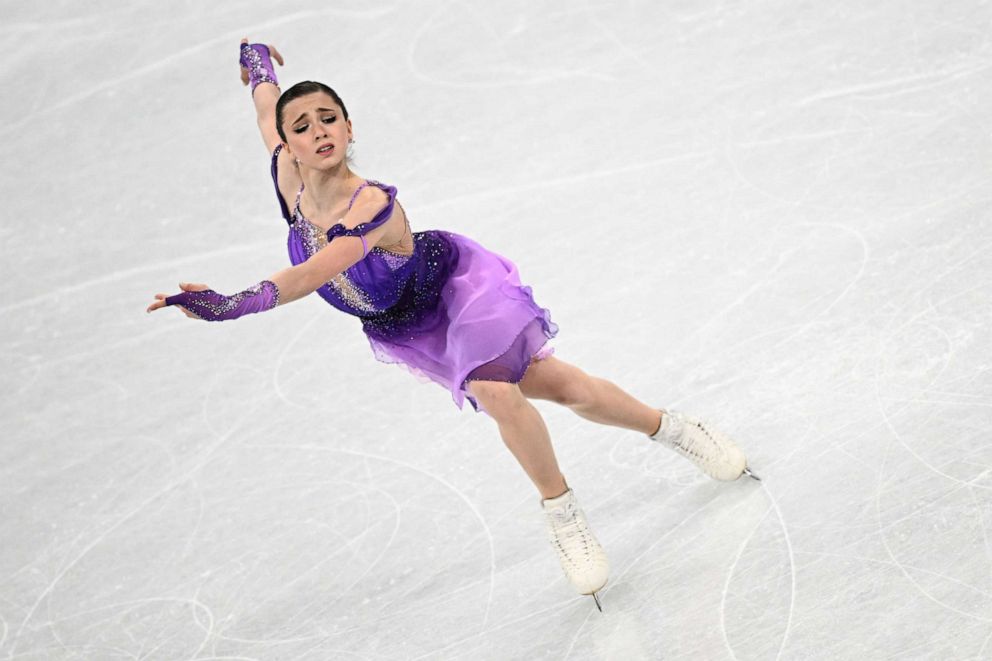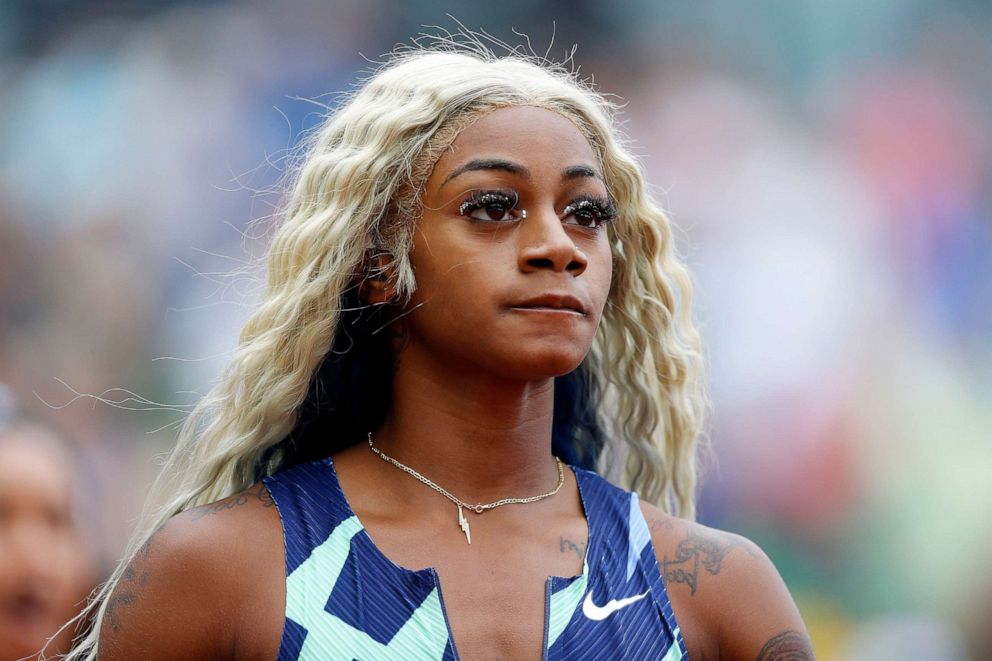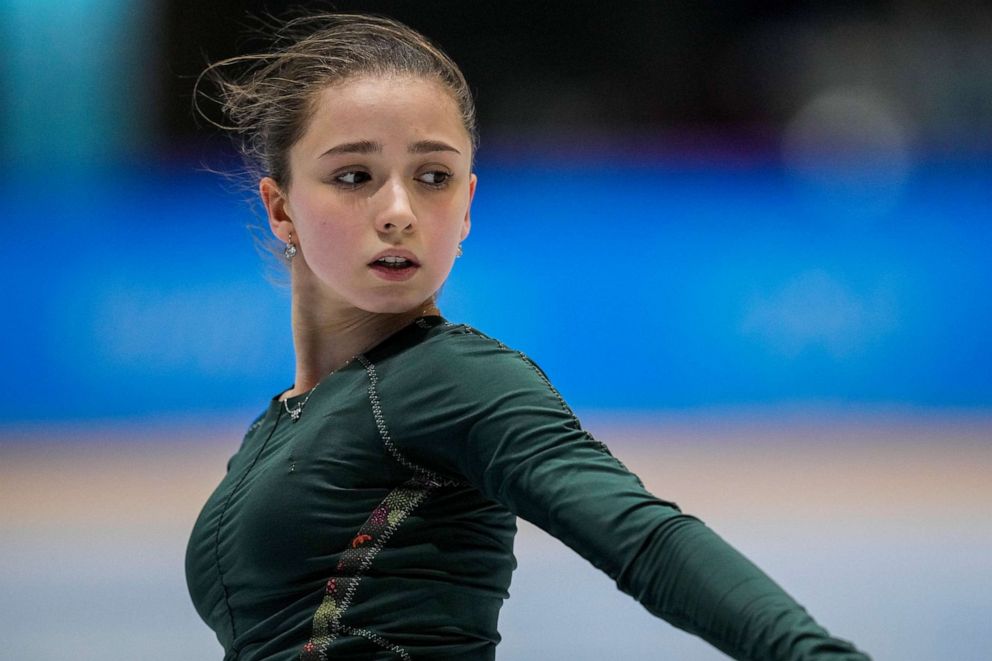Athletes question decision in Kamila Valieva's Olympic doping case: 'What a shame'
Criticisms of a double standard have weight, according to sports law experts.
The ongoing dilemma in the Winter Games involving Russian figure skater Kamila Valieva, who is under investigation over alleged use of a banned heart medication, has athletes around the world calling foul.
And while the circumstances around Valieva's situation stand out from other sports doping cases, given the skater's age and Russia's history around doping, athletes' criticisms that there is a double standard have weight and should prompt changes, according to sports law experts.
"This is a bad look for the sport," Mark Conrad, the director of the sports business program at Fordham University’s Gabelli School of Business, told ABC News. "It's worse for the number of athletes and teams who have been playing by the rules."
Valieva helped the Russian Olympic Committee win the gold in the team skating event. However, on Friday it was revealed she tested positive for a banned drug in December ahead of the Russian Figure Skating Championships, according to the International Testing Agency.

Valieva claimed that her positive drug test was a result of a mix-up with her grandfather’s heart medication, Olympic officials said Tuesday.
It is not known why the test results took more than a month. The medaling ceremony for the team skating event has been indefinitely postponed, but the Court of Arbitration for Sport ruled Monday that Valieva, 15, could continue to take part in the Games.
The panel said there were several reasons behind its decision, including the skater's age making her a "protected person" and "that preventing the athlete from competing at the Olympic Games would cause her irreparable harm."
Valieva took the lead during the first part of the women's short competition Tuesday.
The panel's decision and reasoning did not sit well with other Olympians and Olympic hopefuls, including one who made headlines over the summer when she was forced to bow out of the Tokyo Games over a banned substance.

Track and field sprinter Sha'Carri Richardson, who was not allowed to compete in the last Summer Games after she tested positive for marijuana after a qualifying match, questioned the decision on Valieva. Richardson, 21, admitted to using marijuana, which is legal in Oregon, her state of residence, to help cope with the death of her mother.
"Can we get a solid answer on the difference of her situation and mines? My mother died and I can’t run and was also favored to place top 3," she tweeted Monday. "The only difference I see is I’m a black young lady."
Richardson followed up with tweets contending that THC, which has been on the World Anti-Doping Agency's list of banned substances since 2004, is not a performance-enhancing drug.
Conrad said that Richardson had every right to point out the discrepancy between her case and Valieva's case, especially since the sprinter took full responsibility for using marijuana.
"On the surface, there is a double standard," he said.
Gabe Feldman, the Sher Garner professor of law at Tulane University and director of the school's sports law program, told ABC News that the panel's decision is actually a "triple standard" since there is a well-documented history of doping among some Russian athletes.
Currently, Russian athletes are banned from competing in the Winter Olympics under their own country and flag and can only partake in games under the moniker "Russian Olympic Committee," as part of a punishment for previously violating doping rules.
"If [the Valieva case] turns out to be more serious, it will be bad for the sport, because the system is designed to prevent athletes from competing," Feldman told ABC News. "I think it will raise issues about the efficacy of enforcement."
Richardson wasn't alone in her dismay over the panel's decision, as several Olympic skaters also took to social media to decry officials. South Korean figure skater Yuna Kim, who won gold in the 2010 Winter Olympics and the silver four years later, posted an image of a black square in an Instagram post Monday and said athletes who violate the doping should not be able to compete.
"This principle must be observed without exception. All players' efforts and dreams are equally precious," she wrote.
Former U.S. figure skater Adam Rippon also questioned the panel's reasoning that banning Valieva would cause her irreparable harm. Rippon tweeted that harm would be done to the entire Olympic Games.
"I am so angry. The ladies' event tomorrow is a complete joke. It’s not a real competition and it most likely won’t even have a medal ceremony. So many Olympic experiences stolen from clean athletes who got here without the help of performance-enhancing drugs. What a shame," he tweeted Monday.
Rippon now coaches Mariah Bell, an American figure skater competing against Valieva. Bell finished in 11th after the short program.
Conrad said the investigation into the Russian skating team is still ongoing and quickly changing, and the consequences could be worse for Valieva if officials find any wrongdoing. While ROC athletes are still allowed to compete in the skating matches, they risk having their medals stripped, Conrad said.
"The arbitrators probably felt there was more to lose to ban her, rather than letting her compete and then later take the medals away," he said. "It is a humiliating thing to lose a medal."
Feldman said anti-doping agencies and watchdog groups have to continually play catch-up to the players, teams and Olympic committees that take part in doping, but those groups still need to focus on providing the fairest penalties for each violation.

While Feldman said the agencies take each case with due diligence, he argued they should use this situation to reassess their practices.
"At a minimum, what everyone wants to see is transparency and consistency," he said.
"ABC's Start Here discussed the ongoing Olympic skating scandal during its Feb. 15 episode."




